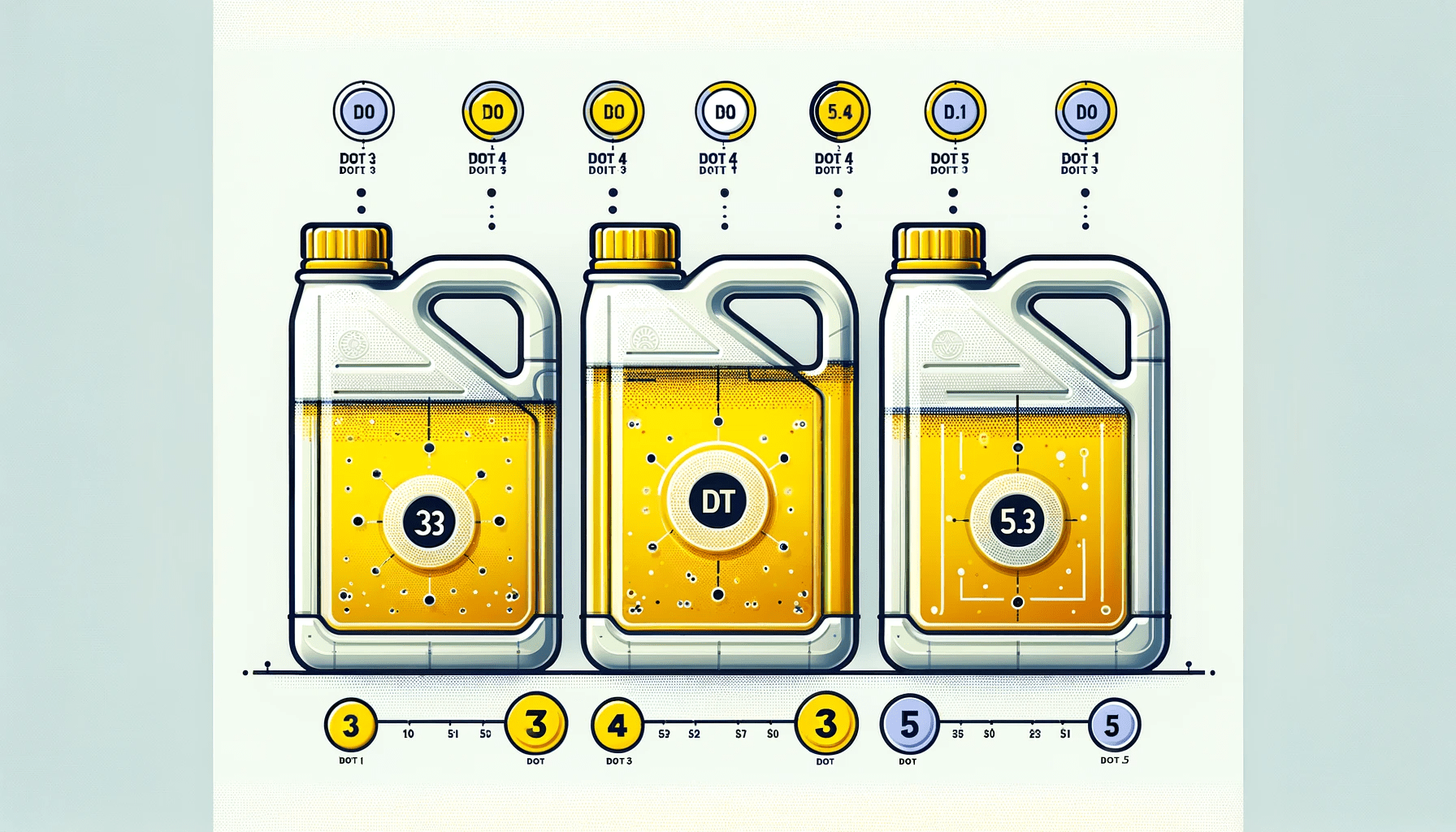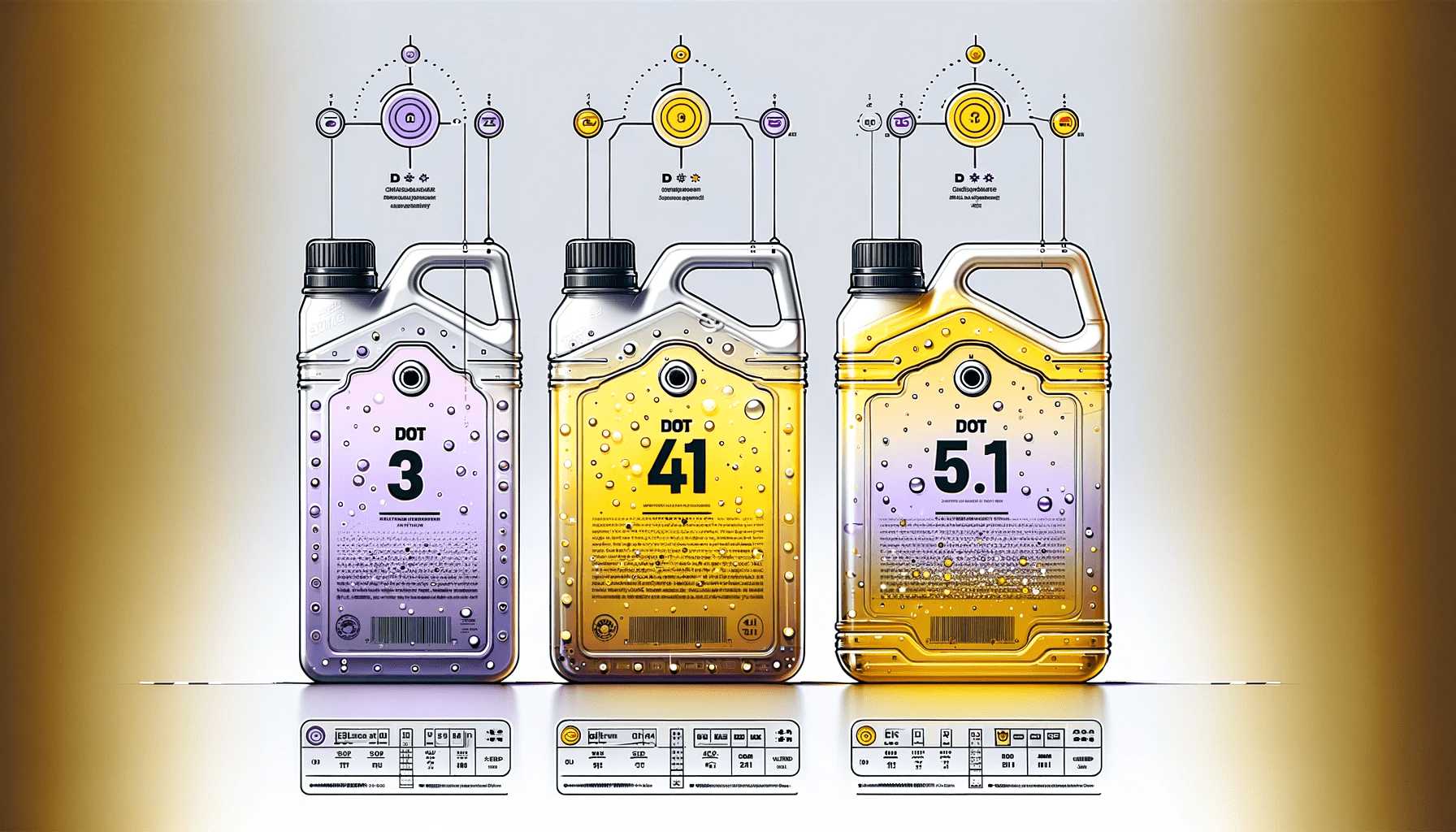Key Takeaways:
| Brake Fluid Type | Key Characteristics | Common Uses |
|---|---|---|
| DOT 3 | Glycol-based, lower boiling point | Older vehicles, some hydraulic clutches |
| DOT 4 | Glycol-based, higher boiling point | Modern vehicles, ABS systems |
| DOT 5 | Silicone-based, high boiling point | Classic cars, military vehicles |
| DOT 5.1 | Glycol-based, very high boiling point | High-performance vehicles |
Brake fluid is the lifeblood of the braking system, a critical car component that ensures your safety on the road. It’s essential to choose the right type for your vehicle’s needs. Let’s delve into the world of brake fluid types, and don’t forget to check out our comprehensive guides on brake system tuning and brake maintenance tips and tricks to keep your brakes in top-notch condition.
DOT 3: The Standard Bearer
Pros:
- Readily available
- Suitable for a wide range of vehicles
Cons:
- Lower boiling point, which can lead to brake fade under heavy use
DOT 3 is a glycol-based fluid, which absorbs water over time. This can lead to a lower boiling point and reduced performance. It’s great for everyday use but may fall short in high-temperature conditions. Remember, regular maintenance is crucial for glycol-based fluids. Dive into our essential guide to car brake maintenance to learn more.

DOT 4: The Upgrade
Pros:
- Higher boiling point than DOT 3
- Better for vehicles with ABS
Cons:
- Still hygroscopic (absorbs water)
DOT 4 brake fluid is a step up, designed for modern vehicles with anti-lock braking systems (ABS). Its higher boiling point provides better performance under stress. To maintain optimal performance, follow our tips to ensure optimal brake performance.
DOT 5: The Specialist
Pros:
- Non-hygroscopic (doesn’t absorb water)
- Does not damage paint
Cons:
- Not compatible with the ABS
DOT 5 brake fluid is silicone-based, meaning it doesn’t absorb water. This characteristic makes it perfect for vehicles that aren’t driven regularly, like classic cars. However, its use is limited due to compatibility issues with ABS. For those unique needs, check out the intricacies of brake system tuning.
DOT 5.1: For the Enthusiast
Pros:
- Very high boiling point
- Compatible with ABS and other modern vehicle systems
Cons:
- More expensive than other types
DOT 5.1 is essentially the high-performance sibling in the brake fluid family. It’s ideal for high-performance vehicles where braking systems are under extreme stress.
Choosing the Right Fluid for Your Car
Selecting the right brake fluid is vital for safety and performance. Here’s a quick reference:
- For older vehicles: DOT 3 could be your best bet.
- For most modern vehicles: DOT 4 provides a good balance.
- For classic or military vehicles: DOT 5 is the go-to choice.
- For high-performance cars: DOT 5.1 will keep up with the demands.
Remember, never mix silicone-based and glycol-based fluids, as they are not compatible and can degrade your vehicle’s braking performance.
For detailed insight into maintenance, our article on the importance of regular brake checks provides a deep dive into why keeping tabs on your brake fluid is essential.
Brake Fluid Types: Maintaining Your Brake Fluid

Maintaining your brake fluid is not just about topping it off. It’s about ensuring the safety and responsiveness of your vehicle’s braking system. Here’s a brief checklist for brake fluid maintenance:
- Regular Checks: Every 2 years or as per your manufacturer’s recommendation.
- Flush and Replace: To remove contaminants and maintain a high boiling point.
- Never Mix Fluids: Different types of brake fluids should not be mixed.
- Professional Inspection: Always recommended if you are unsure.
Brake Fluid Maintenance & Compatibility Guide
| Brake Fluid Type | Maintenance Interval | ABS Compatibility | Water Absorption | Boiling Point |
|---|---|---|---|---|
| DOT 3 | Every 2 years | Yes | Hygroscopic | Lower |
| DOT 4 | Every 2 years | Yes | Hygroscopic | Higher |
| DOT 5 | As needed | No | Non-Hygroscopic | Highest |
| DOT 5.1 | Every 2 years | Yes | Hygroscopic | Very High |
Note: Always refer to your vehicle’s manual for the manufacturer’s specific recommendations.
Conclusion about Brake Fluid Types
For those unexpected situations where you might need a repair, arm yourself with knowledge from our guide on everything you need to know about brake repairs.
When it comes to brake fluid, choosing the correct type is paramount, but so is regular maintenance. With the right fluid and care, your brake system will perform optimally, keeping you and your passengers safe. Whether you’re pushing your car to its limits or cruising down the open road, understanding brake fluids is the key to peak performance.